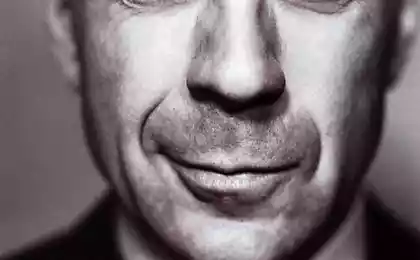451
How to turn people into biomass
Eighty eight million four hundred eighty nine thousand two hundred one
"I became interested in the phenomenon of the German concentration camps from the time of their occurrence, long before was their prisoner. When this happened, I began an intensive study camp from the inside. Shortly after my release, I tried to perform, mainly psychologically, my experience of imprisonment and to formulate some theoretical propositions arising from it. The impetus for the work was, first, common at the time misunderstanding of the nature of the concentration camps, which was seen as the explosion of sadistic impulses, devoid of any meaning; and, second, the discovery of my personality changes under the influence of the prisoners in the camps.Further reflection convinced me that my analysis has a broader meaning than I thought at first. It can be used for explanations of totalitarianism, to find ways of preserving the autonomy of the individual in the state. If the existence, under certain conditions, which I will call extreme, can severely deform the human personality, we must, apparently, to better understand why and how this happens. Not only to know what you can do to a person these most extreme conditions, but also because every society shapes the individual, although may be other ways and other directions."From the book of Bruno Bettelheim "People in a concentration camp"
Rule 1. Make the person to engage in meaningless work.
One of the favorite activities of the SS – to get people to do absolutely meaningless work, and the prisoners realized that it does not make sense. Carry stones from one place to another, dig holes with their bare hands when the shovel lying nearby. Why? "Because I said so, you Jew!".
(How is this different from "because they have" or "to carry out your business and not think"?)
Rule 2. Enter the conflicting rules violations that are inevitable.
This rule created an atmosphere of constant fear of being caught. People were forced to negotiate with the guards, or "Capo" (the SS assistants among the prisoners), falling from them in complete dependence. Unfolded a large field for blackmail: the guards and Capo could draw attention to the violations and didn't have to pay – in exchange for certain services.
(The absurdity and contradictory parental demands or state laws – full analogue).
Rule 3. Enter collective responsibility.
Collective responsibility erodes personal – it's a well known rule. But in conditions when the price of failure is too high, collective responsibility makes all members of the group to the guards one after the other. The team becomes an unwitting ally of the SS and the camp administration.
Often, in obedience to a whim, the SS gave another senseless order. The desire for obedience was embedded in the psyche so much so that there were always prisoners who had long complied with this order (even when the SS forgot about it five minutes later) and forced others to do. So, once the warden ordered a group of prisoners to wash their shoes inside and out with soap and water. Boots became hard as a rock, rubbed his legs. The order will never be repeated. However, a long time in the camp prisoners continued every day to wash the inside of his boots and cursed anyone who did not, for negligence and dirt.
(The principle of group responsibility... When "all are guilty", or when a specific person can only see as a representative of a stereotyped group and not as a spokesman for their own opinions).
These are the three "provisional rules". Shock link are the following three crushing already prepared person in the biomass.
Rule 4. Make people believe that nothing depends on them. To do this: create an unpredictable environment in which it is impossible to plan anything and make people live according to the instructions, preventing any initiative.
A group of Czech prisoners destroyed. For some time they have identified as "noble" entitled to certain privileges given to live in relative comfort without work and hardship. Then suddenly threw the Czechs to work in a quarry, where there were the worst working conditions and highest mortality rate, while cutting the food ration. Then back to a good home and light work, a few months later – again in the quarry, etc were any survivors. The total lack of control of his own life, the inability to predict what you reward or punish, cut the ground from under his feet. The person simply does not have time to develop adaptation strategies, it disorganized completely.
"Human survival depends on its ability to retain some area of free behaviour, retain control over some important aspects of life, despite the conditions that seem unbearable... Even a small, symbolic opportunity to act or not to act, but on their own, to survive me and like me". (italics in quotes — quotes by B. Bettelheim).
Severe routine constantly customized people. If one or two minutes delay on the washing – late to the toilet. Delayed cleaning your bed (Dachau had beds) – you will have no Breakfast, and scarce. The rush, the fear of late, not a second to think about it and stop Constantly... you customize the perfect guards: time and fear. Not you plan the day. You don't choose what to do. And you don't know what will happen to you then. Punishment and the promotion went without any system. If at first, the prisoners thought that the good work will save them from punishment, then came the understanding that there is no guarantee from dispatch to get the stones in his career (the deadliest lesson). And rewarded just. It's just a matter of the whim of the SS.
(Authoritarian parents and organisations is very beneficial to this rule, because it provides the lack of activity and initiative on the part of recipients of messages like, "nothing depends on you", "well, what have you achieved", "it was and always will be").
Rule 5. Make people pretend they don't see or hear.
Bettelheim describes such a situation. The SS man beating a man. Passes by the column of slaves, who, noticing the beating, in unison turns head to the side and accelerated sharply, his whole appearance indicating that "did not notice" what is happening. SS, not looking up from her work, shouting "well done!". Because the prisoners showed that they had learned the rule "not to know and not to see what is not allowed." And they're enhanced by shame, a feeling of powerlessness and at the same time, they unwittingly become the accomplices of the SS, playing his game.
(In families with flourishing violence, often the situation when someone from the family sees and understands, but pretends he sees nothing and knows. For example, a mother whose child is sexually abused by the father/stepfather... In totalitarian States usually "all know, but pretend..." is the most important condition of their existence)
Rule 6. Make people cross the last internal line.
"To avoid becoming a walking corpse and remain a man, let him humiliated and degraded, it was necessary all the time to realize where that line is, where there is no return, a feature which cannot be derogated from under any circumstances, even if it is life threatening. Be aware that if you survived at the cost of conversion for this feature, you will continue life lost all meaning".
Bettelheim brings this very visual, the story of the "last frontier". One day the SS officer noticed two Jews who "Skive". He made them lie down in a dirty ditch, called the prisoner-pole from the neighbouring brigade and ordered to bury fallen out of favor alive. Pole refused. The SS man was beating him, but the pole continued to refuse. Then the overseer ordered them to swap places, and the other two were ordered to bury the pole. And they began to bury his companion in misfortune without the slightest hesitation. When the pole is almost buried, the SS ordered them to stop digging it back up again and then themselves go in the ditch. And again ordered the poles to bury them. This time he obeyed – or out of revenge, or thinking that the SS will be spared at the last minute. But the warden is not pardoned: he pretotal boots land over the heads of the victims. Five minutes – one dead and the other dying – sent to the crematorium.
The result of the implementation of the rules:
"Prisoners who have learned constantly told to SS the idea that they have no hope, believing that they cannot influence their situation – such prisoners became, in the literal sense, walking corpses...".
The process of making these zombies was simple and clear. First, a person has ceased to act according to his will, he was left with no internal source of motion, everything he did was determined by the pressure from the guards. They automatically followed orders, without any selectivity. Then they ceased to lift his legs when walking, started out very typical shuffling. Then they started to look only in front of him. And then came death.
Zombie people turned to when they rejected any attempt to make sense of their own behavior and came to the state when they could take anything, anything that came from outside. "Those who survived realized what I didn't realize that they have last but maybe the most important human freedom – in any circumstances to choose their own attitude". Where there is no private relationship, begins zombies. published
Source: anton-klyushev.livejournal.com/1334429.html
"I became interested in the phenomenon of the German concentration camps from the time of their occurrence, long before was their prisoner. When this happened, I began an intensive study camp from the inside. Shortly after my release, I tried to perform, mainly psychologically, my experience of imprisonment and to formulate some theoretical propositions arising from it. The impetus for the work was, first, common at the time misunderstanding of the nature of the concentration camps, which was seen as the explosion of sadistic impulses, devoid of any meaning; and, second, the discovery of my personality changes under the influence of the prisoners in the camps.Further reflection convinced me that my analysis has a broader meaning than I thought at first. It can be used for explanations of totalitarianism, to find ways of preserving the autonomy of the individual in the state. If the existence, under certain conditions, which I will call extreme, can severely deform the human personality, we must, apparently, to better understand why and how this happens. Not only to know what you can do to a person these most extreme conditions, but also because every society shapes the individual, although may be other ways and other directions."From the book of Bruno Bettelheim "People in a concentration camp"
Rule 1. Make the person to engage in meaningless work.
One of the favorite activities of the SS – to get people to do absolutely meaningless work, and the prisoners realized that it does not make sense. Carry stones from one place to another, dig holes with their bare hands when the shovel lying nearby. Why? "Because I said so, you Jew!".
(How is this different from "because they have" or "to carry out your business and not think"?)
Rule 2. Enter the conflicting rules violations that are inevitable.
This rule created an atmosphere of constant fear of being caught. People were forced to negotiate with the guards, or "Capo" (the SS assistants among the prisoners), falling from them in complete dependence. Unfolded a large field for blackmail: the guards and Capo could draw attention to the violations and didn't have to pay – in exchange for certain services.
(The absurdity and contradictory parental demands or state laws – full analogue).
Rule 3. Enter collective responsibility.
Collective responsibility erodes personal – it's a well known rule. But in conditions when the price of failure is too high, collective responsibility makes all members of the group to the guards one after the other. The team becomes an unwitting ally of the SS and the camp administration.
Often, in obedience to a whim, the SS gave another senseless order. The desire for obedience was embedded in the psyche so much so that there were always prisoners who had long complied with this order (even when the SS forgot about it five minutes later) and forced others to do. So, once the warden ordered a group of prisoners to wash their shoes inside and out with soap and water. Boots became hard as a rock, rubbed his legs. The order will never be repeated. However, a long time in the camp prisoners continued every day to wash the inside of his boots and cursed anyone who did not, for negligence and dirt.
(The principle of group responsibility... When "all are guilty", or when a specific person can only see as a representative of a stereotyped group and not as a spokesman for their own opinions).
These are the three "provisional rules". Shock link are the following three crushing already prepared person in the biomass.
Rule 4. Make people believe that nothing depends on them. To do this: create an unpredictable environment in which it is impossible to plan anything and make people live according to the instructions, preventing any initiative.
A group of Czech prisoners destroyed. For some time they have identified as "noble" entitled to certain privileges given to live in relative comfort without work and hardship. Then suddenly threw the Czechs to work in a quarry, where there were the worst working conditions and highest mortality rate, while cutting the food ration. Then back to a good home and light work, a few months later – again in the quarry, etc were any survivors. The total lack of control of his own life, the inability to predict what you reward or punish, cut the ground from under his feet. The person simply does not have time to develop adaptation strategies, it disorganized completely.
"Human survival depends on its ability to retain some area of free behaviour, retain control over some important aspects of life, despite the conditions that seem unbearable... Even a small, symbolic opportunity to act or not to act, but on their own, to survive me and like me". (italics in quotes — quotes by B. Bettelheim).
Severe routine constantly customized people. If one or two minutes delay on the washing – late to the toilet. Delayed cleaning your bed (Dachau had beds) – you will have no Breakfast, and scarce. The rush, the fear of late, not a second to think about it and stop Constantly... you customize the perfect guards: time and fear. Not you plan the day. You don't choose what to do. And you don't know what will happen to you then. Punishment and the promotion went without any system. If at first, the prisoners thought that the good work will save them from punishment, then came the understanding that there is no guarantee from dispatch to get the stones in his career (the deadliest lesson). And rewarded just. It's just a matter of the whim of the SS.
(Authoritarian parents and organisations is very beneficial to this rule, because it provides the lack of activity and initiative on the part of recipients of messages like, "nothing depends on you", "well, what have you achieved", "it was and always will be").
Rule 5. Make people pretend they don't see or hear.
Bettelheim describes such a situation. The SS man beating a man. Passes by the column of slaves, who, noticing the beating, in unison turns head to the side and accelerated sharply, his whole appearance indicating that "did not notice" what is happening. SS, not looking up from her work, shouting "well done!". Because the prisoners showed that they had learned the rule "not to know and not to see what is not allowed." And they're enhanced by shame, a feeling of powerlessness and at the same time, they unwittingly become the accomplices of the SS, playing his game.
(In families with flourishing violence, often the situation when someone from the family sees and understands, but pretends he sees nothing and knows. For example, a mother whose child is sexually abused by the father/stepfather... In totalitarian States usually "all know, but pretend..." is the most important condition of their existence)
Rule 6. Make people cross the last internal line.
"To avoid becoming a walking corpse and remain a man, let him humiliated and degraded, it was necessary all the time to realize where that line is, where there is no return, a feature which cannot be derogated from under any circumstances, even if it is life threatening. Be aware that if you survived at the cost of conversion for this feature, you will continue life lost all meaning".
Bettelheim brings this very visual, the story of the "last frontier". One day the SS officer noticed two Jews who "Skive". He made them lie down in a dirty ditch, called the prisoner-pole from the neighbouring brigade and ordered to bury fallen out of favor alive. Pole refused. The SS man was beating him, but the pole continued to refuse. Then the overseer ordered them to swap places, and the other two were ordered to bury the pole. And they began to bury his companion in misfortune without the slightest hesitation. When the pole is almost buried, the SS ordered them to stop digging it back up again and then themselves go in the ditch. And again ordered the poles to bury them. This time he obeyed – or out of revenge, or thinking that the SS will be spared at the last minute. But the warden is not pardoned: he pretotal boots land over the heads of the victims. Five minutes – one dead and the other dying – sent to the crematorium.
The result of the implementation of the rules:
"Prisoners who have learned constantly told to SS the idea that they have no hope, believing that they cannot influence their situation – such prisoners became, in the literal sense, walking corpses...".
The process of making these zombies was simple and clear. First, a person has ceased to act according to his will, he was left with no internal source of motion, everything he did was determined by the pressure from the guards. They automatically followed orders, without any selectivity. Then they ceased to lift his legs when walking, started out very typical shuffling. Then they started to look only in front of him. And then came death.
Zombie people turned to when they rejected any attempt to make sense of their own behavior and came to the state when they could take anything, anything that came from outside. "Those who survived realized what I didn't realize that they have last but maybe the most important human freedom – in any circumstances to choose their own attitude". Where there is no private relationship, begins zombies. published
Source: anton-klyushev.livejournal.com/1334429.html























